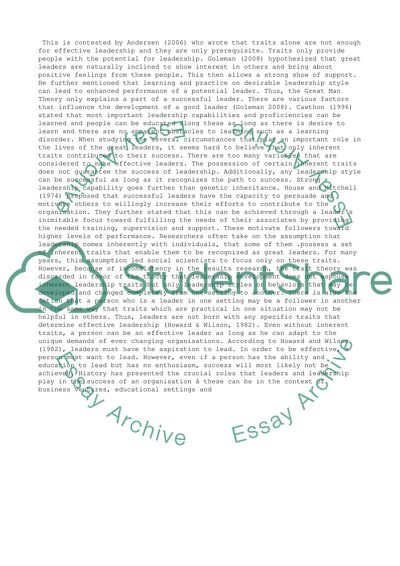Cite this document
(“Leadership Essay Example | Topics and Well Written Essays - 1000 words”, n.d.)
Retrieved de https://studentshare.org/management/1390224-leadership
Retrieved de https://studentshare.org/management/1390224-leadership
(Leadership Essay Example | Topics and Well Written Essays - 1000 Words)
https://studentshare.org/management/1390224-leadership.
https://studentshare.org/management/1390224-leadership.
“Leadership Essay Example | Topics and Well Written Essays - 1000 Words”, n.d. https://studentshare.org/management/1390224-leadership.


